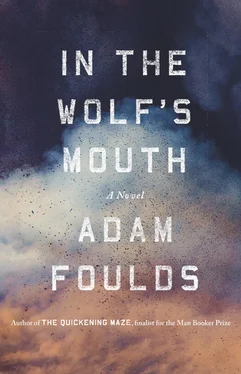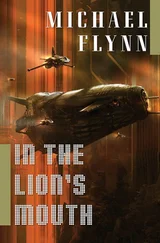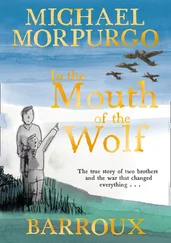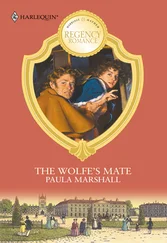Gem stood at the end of a narrow side street. He disappeared into it and Ray followed. He found Gem staring upwards, mouth open.
Ray looked up and saw a row of wrought-iron balconies, all with birdcages and little yellow birds hopping about in them.
There was a blazing stripe of brickwork and cornice above the shadow cast by the buildings on the other side of the street. Above that was blue sky, deep hyacinth blue. One of the birds starting to sing, trilling loudly. This set off another. Suddenly the whole alley was ringing with birdsong.
Ray smiled. He thought that this would be a memory, this would be victory in Sicily and how happy the people were.
When they went back to the main street, they’d lost the rest of the unit.
They hitched a lift from a man who drove a small, snarling three-wheeled truck. They mixed their Italian and Sicilian and thought they understood each other. It was only when Ray felt the mellow heat of the sunset on the back of his neck that he realised they were heading in the wrong direction. They were useless soldiers. It was comical. They climbed out of the truck in the next village and knocked on a door. They slept that night on the owner’s mattress, stuffed with what felt like straw and horsehair. However they positioned themselves, it poked and irritated. Fibrous tufts scratched at their faces and stuck into their bellies. They writhed and swore.
In the morning they looked around for a ride but couldn’t find one. They received a number of instructions about where to go and to wait for someone called Beppe who might appear. He did not appear. Ray watched the skulking cats, the men who sat with arms folded and muttered. After a couple of hours, they started walking west.
Gem stopped to pick up coloured stones. He ran to catch insects. He brought his closed hands up to Ray’s ear so he could hear the dry buzzing inside.
He was new, Gem. He’d hardly seen anything. He wanted to know about Africa. The questions made Ray feel sick. He couldn’t answer. The closest he came was saying that you sure made good friends in those situations. He tried telling Gem about George but found he couldn’t conjure up what was so good about him. He said, ‘He was just a great guy. The best, you know. A pal, for sure. I got his address from him. When we get back I’ll write. All the time we were invading I was thinking of him ahead of us, where he was, you know. I hope he’s doing okay. I’m sure he is. Sometimes when I’m down I fear the worst and it’s like he’s not there any more. Then, when I’m feeling okay, I know he is.’
‘I’m sure he is,’ Gem echoed. But you couldn’t say that and it didn’t help, pure corny sentiment. Ray wiped his sweating palms on his pants and kept walking.
‘That stuff,’ he said. ‘It’s better if you don’t ask.’
‘Okay. Whatever you say.’
‘I don’t want to crack up,’ Ray interrupted him. ‘You’ve seen those guys. How it gets.’
‘Yeah, no. Fuck that. That’s no good for anybody. Look, how far do you think I can throw this stone? You reckon I could hit that tree?’
That night they ate from the hospitality of one of the locals, a thin minestrone with hardly anything floating in its flavoured water.
Gem told the black-clad woman, ‘Just like my mamma makes.’
Ray said, ‘I think we should go to Palermo and start again from there. Otherwise we’ll be lost for ever.’
‘Could be worse.’
‘Or we don’t go back at all, how about that?’
‘Become deserters, you mean?’
‘That’s the way. Blend in. Disappear. Just watch it all happen.’
‘Become Sicilians. This old girl’s gotta have some daughters.’
The following day they were starting to get into the higher country. They passed between the flaking, bullet-pecked walls of a village and out into hills.
‘They look sorta soft, don’t they?’ Ray liked Gem enough now to share thoughts like this with him, odd, vulnerable thoughts that took some understanding. ‘The way they’re crumpled up, I mean.’
‘Yeah.’
Ray thought they looked like heaped cloths with long folds of shadow. ‘You could make a cowboy picture here. They’ve even got those cactuses.’
‘Prickly pears. And we got guns. Just need some Indians.’
‘Indians all ran away, thank Christ.’
‘Look up ahead. One of their trucks.’
‘Indians didn’t have no trucks.’
On the road about a hundred yards ahead of them was a burned-out truck, its green paint blistered by fire, its canvas gone but for charred shreds. As they approached it, Gem started to jog ahead to have a look. Always eager. Ray saw him jump up into the air and apart in pieces. That was a strange thing for him to do. Ray felt a powerful hot wave overwhelm him. He saw one of Gem’s lower legs, the boot and the shin, whirling towards him, right at his face.
Ray woke up and opened his eyes. The immense, painful light of the sky dropped onto him. His mouth was full. He wrenched himself over onto his stomach and coughed, hawking hard to dislodge a gritty paste at the back of his tongue. He stood up and started walking, falling forwards and catching himself with each stride. He walked past the small crater and the remains, the colours strong in the sunlight, and past the truck, its shreds of canvas flickering madly, rasping in the breeze. He walked straight into that area so that he too would jump and disappear. But he didn’t. The world wouldn’t take him. He had to carry on hobbling over its hard surface, over rocks and into the wind.
He walked for some time, well clear of the area. His feet kept hitting the ground and he didn’t fall over. There were little itchy patches on his face and body. When he touched them, they were wet, loose or sticky. He walked over a hill and down to the right. The apparition of a large building. He walked towards it.
The building grew. It had three sides. No one stopped him as he approached. He went in through the door into a hallway as big as a museum. Overhead the ceiling swarmed with clouds and angels. In front of him, stone steps, round at the edges. They poured towards him. He started walking up them. He wanted help, he supposed, but he didn’t call out for it. The silence was nicer. It was nice to be inside where it was quiet.
Corridors and furniture, gold-framed paintings leaning forwards off the walls like they wanted to look at him or tell him something. There were rooms to the sides of the corridor, widely spaced. The third of them had an open door. It was a lady’s bedroom. There was a dressing-table with a mirror and brushes and little bottles. Soft colours, patterns. So gentle and floral, he stepped inside. A bed. A chair, books. He reached out to touch a book and saw his fingers leave blood marks. He caught sight of his headless body in the dressing-table mirror. His uniform was stained. This made him want to cry.
The bed was extraordinary. An ornate silver frame had doves resting in curlicues of branches. The cover was of dark silver satin. He lifted it up, slippery between his fingers, and climbed in. The thick pillows slowly gave way under his head. He drew his knees up to his chest, pulled the cover over him and closed his eyes.
When he opened them again, a young woman was sitting on the end of the bed, staring at him.
He tried to speak but his voice cracked. He coughed and tried again. ‘Don’t make me go back. I’m not going back. Don’t make me.’
‘You are American,’ she said.
Who are you? What is this place? Don’t make me go back.’
The young woman was smiling. Her skin was pale yellow. Her eyes were dark and glittering. She was breathing intensely through her smile, through her teeth. He said again, ‘Don’t make me go back.’
Читать дальше












